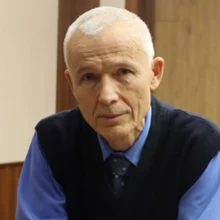
A New and Technological Approach to Elections Begins  The Central Election Commission held a meeting and a series of events today, July 26th. The primary agenda item was the preparation and high-level accomplishment of the upcoming elections for the Legislative Chamber of the Oliy Majlis and the Councils of People's Deputies in full compliance with the Constitution and laws.
The Central Election Commission held a meeting and a series of events today, July 26th. The primary agenda item was the preparation and high-level accomplishment of the upcoming elections for the Legislative Chamber of the Oliy Majlis and the Councils of People's Deputies in full compliance with the Constitution and laws.
According to Article 128 of the Constitution of the Republic of Uzbekistan, elections for the Legislative Chamber of the Oliy Majlis and the Councils of People's Deputies are scheduled to take place on the first Sunday of the third ten-day period of October in the year their term expires. Considering that the term of the deputies of the Legislative Chamber of the Oliy Majlis and the Councils of People's Deputies ends in 2024, the elections will be held on October 27th of this year, and the election campaign will begin on July 26th, as decided by the Central Election Commission. READ MORE
- EGF Editor |
Published on EGF: 26.07.2024
| Security
-
Azerbaijan Strengthens Trilateral Cooperation With Pakistan and Türkiye  By Vasif HUSEYNOV, PhD, Head of Department, AIR Center, Adjunct Lecturer, ADA and Khazar Universities, Baku
By Vasif HUSEYNOV, PhD, Head of Department, AIR Center, Adjunct Lecturer, ADA and Khazar Universities, Baku
On July 11 and 12, Azerbaijani President Ilham Aliyev paid a state visit to Pakistan to bolster bilateral ties with Islamabad. The visit came less than two weeks after Aliyev’s meeting with Pakistani Prime Minister Muhammad Shehbaz Sharif and Turkish President Recep Tayyip Erdogan for their first-ever trilateral summit. The meeting took place on the sidelines of the Shanghai Cooperation Organization summit on July 3 in Astana and was a significant milestone in elevating their tripartite cooperation from parliamentary and ministerial levels to state leadership. Both Aliyev’s visit to Islamabad and the trilateral summit of Azerbaijan, Pakistan, and Türkiye highlight the three countries’ commitment to expanding their trilateral trade and transit cooperation, as well as better integrating their military capabilities and defence production.
READ MORE
- EGF Editor |
Published on EGF: 26.07.2024
| External Relations
-
What does Azerbaijan’s “shift to the East” mean for the South Caucasus?  By Yeghia TASHJIAN, Beirut-based regional analyst and researcher, columnist, "The Armenian Weekly”
By Yeghia TASHJIAN, Beirut-based regional analyst and researcher, columnist, "The Armenian Weekly”
On August 29, 2023, in my article “What does the expansion of BRICS mean for the South Caucasus?” I argued that Iran’s accession to BRICS and the integration of the region’s infrastructure into the International North-South Transport Corridor (INSTC) would similarly increase pressure on Armenia and Azerbaijan to join the bloc. The post-2020 regional status quo and the war in Ukraine have opened the path for new Eurasian actors such as India and China to exert their influence on the South Caucasus. Azerbaijan is the main beneficiary of this development. Positioned strategically along the North-South and East-West transport corridors, Baku has capitalized on its position to become a pivotal transportation and logistics hub in Eurasia. This has caught the attention of China amid the geopolitical shifts that took place in the South Caucasus in light of the second Artsakh (Nagorno-Karabakh) and Ukraine wars.
READ MORE
- EGF Editor |
Published on EGF: 26.07.2024
| External Relations
-
What drives Azerbaijani obsession with the Armenian Constitution?  By Benyamin POGHOSYAN, PhD, Chairman, Center for Political and Economic Strategic Studies
By Benyamin POGHOSYAN, PhD, Chairman, Center for Political and Economic Strategic Studies
Since the end of the Second Nagorno-Karabakh War in 2020, Armenia and Azerbaijan have been engaged in negotiations to sign a peace agreement. The process seems like a roller coaster of extreme ups and downs, reflecting the volatile and unpredictable nature of the discussions. Several times, the sides have seemed close to reaching a deal only for an unexpected circumstance to arise, causing a significant reversal during the peace talks. In late 2022, after intensive negotiations in Washington and Prague, Azerbaijan refused to appear in Brussels and instead launched a blockade of the self-proclaimed Nagorno-Karabakh Republic. Azerbaijan did the same at the end of 2023, when despite mounting hopes for an imminent agreement President Aliyev refused to attend the European Political Community (EPC) summit in October 2023 in Granada and the trilateral Armenia–Azerbaijan–European Union summit in Brussels.
READ MORE
- EGF Editor |
Published on EGF: 26.07.2024
| External Relations
-
Uzbekistan plans to increase exports of electrical products to Europe, countries of South Asia and the Middle East  Yuri Kutbitdinov,
Yuri Kutbitdinov,
chief Research Officer of the Center for Economic Research and Reforms under the Administration of the President of the
Republic of Uzbekistan
There are about a thousand manufacturing enterprises operating in the electrical engineering sector of Uzbekistan, most of them small, producing over two thousand types of products. Almost all enterprises in the industry are privately owned. The total number of people employed in the industry exceeds 35,000.
The 76 largest enterprises in the industry, which produce over 90% of all electrical engineering products, are members of the Association of Electrical Engineering Manufacturers (UzEltechSanoat). Of these, 18 enterprises manufacture electrical wires and cables, 27 enterprises manufacture household appliances, and 32 enterprises manufacture power transformers and other electrical products.
READ MORE
- EGF Editor |
Published on EGF: 20.07.2024
| Energy
-
What is behind the Azerbaijan–Pakistan love affair?  By Benyamin POGHOSYAN, PhD, Chairman, Center for Political and Economic Strategic Studies
By Benyamin POGHOSYAN, PhD, Chairman, Center for Political and Economic Strategic Studies
Recently, Azerbaijan–Pakistan ties have grown significantly through economic and military-technical cooperation. Pakistan threw its full support behind Azerbaijan during the 2020 Nagorno-Karabakh war, supplying weapons and providing training for Azerbaijani special forces. When Azerbaijan claimed victory in November 2020, the streets of Baku were full of Pakistani flags. Relations grew closer still after 2020, with intensive negotiations to buy Pakistani-made military jets and supply Azerbaijani gas to Pakistan. They discussed a series of joint projects worth $2 billion, setting up a bilateral committee to develop the projects. Most importantly, President Aliyev expressed his full support for Pakistan on the issue of Kashmir, claiming that international law and justice are on the side of Pakistan.
READ MORE
- EGF Editor |
Published on EGF: 20.07.2024
| External Relations
-
External Actors and Geopolitical Pivoting in the South Caucasus  By Marat Terterov, PhD, Founder, and former Executive Director of the EGF
By Marat Terterov, PhD, Founder, and former Executive Director of the EGF
Small countries often find themselves having to make difficult choices when it comes to navigating optimal pathways for their national development. Their relations with larger powers, as well as competing relations between larger powers with an interest in specific regions where small countries are located, will invariably impact on their development. One of the regions of the world where the impact of larger powers on the development of smaller countries is highly evident is the South Caucasus, a region of the former-Soviet Union predominantly associated with the countries of Armenia, Azerbaijan and Georgia. These three relatively small yet important countries in a region of strategic importance have come a long way since they became independent nation states following the collapse of the Soviet Union at the end of 1991.
READ MORE
- EGF Editor |
Published on EGF: 13.07.2024
| External Relations
-
United States Encourages Armenia and Azerbaijan to Sign Peace Treaty ‘Without Delay’  By Vasif HUSEYNOV, PhD, Head of Department, AIR Center, Adjunct Lecturer, ADA and Khazar Universities, Baku
By Vasif HUSEYNOV, PhD, Head of Department, AIR Center, Adjunct Lecturer, ADA and Khazar Universities, Baku
On June 20, during a phone call with Azerbaijani President Ilham Aliyev, US Secretary of State Antony Blinken called upon the Armenian and Azerbaijani governments to conclude a peace agreement “without delay” (US State Department, June 20). He stressed Washington’s willingness to support the peace process “in any way useful to the parties.” During his recent trip to the South Caucasus in late June, US Deputy Secretary of State James O’Brien reiterated these messages to the respective governments of Azerbaijan and Armenia. The United States views peace between the two countries in a larger geopolitical perspective, characterizing it as vital to reducing wider regional dependency on Washington’s foes.
READ MORE
- EGF Editor |
Published on EGF: 13.07.2024
| Security
-
President Aliyev does not intend to sign a peace agreement with Armenia  By Benyamin POGHOSYAN, PhD, Chairman, Center for Political and Economic Strategic Studies
By Benyamin POGHOSYAN, PhD, Chairman, Center for Political and Economic Strategic Studies
As war in Ukraine rages and the confrontation between Russia and the West continues unabated, a growing number of experts are speaking of the beginning of Cold War 2.0, pitting the West against Russia, China, Iran, and North Korea, the so-called “Axis of upheaval.” As with the original Cold War, the new one covers many areas of the globe, including Asia-Pacific, Africa, and the Middle East. The former Soviet Union remains the heart of this confrontation, and the South Caucasus is no exception. Strategically located between Russia, Turkey, and Iran, for the 25 years after the collapse of the Soviet Union the region was mainly the scene of competition between Russia and Turkey, with the first in the leading role. The last four years have brought significant changes in equilibrium. Azerbaijan transformed the status quo in the Nagorno-Karabakh conflict by defeating Armenia in the 2020 Nagorno-Karabakh War with the direct military involvement of Turkey.
READ MORE
- EGF Editor |
Published on EGF: 13.07.2024
| Security
-
Human dignity and the benefits of the people in New Uzbekistan – high values  Khudoyberdi Khaknazarov
Khudoyberdi Khaknazarov
Doctor of History
It is not an exaggeration to say that in the historical conditions where humanity is going through a difficult period, where contradictions and conflicts are intensifying and seriously undermining stability, in the multi-ethnic New Uzbekistan, human dignity and the interests of the people are recognized as the highest values, and in this regard, it is becoming an example and model for many countries of the world.
Because sustainable development can be achieved first of all by valuing and honoring people, creating conditions for the population to live well today, and realizing the high trust and responsibility of the population for the future.
READ MORE
- EGF Editor |
Published on EGF: 12.07.2024
| Security
-
